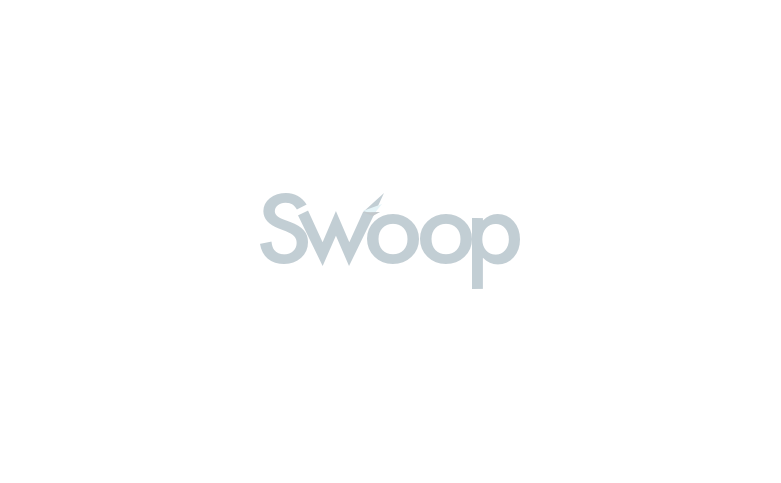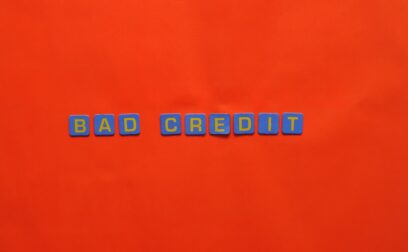TABLE OF CONTENTS

Page written by Clayton Van Wyk. Last reviewed on June 6, 2025. Next review due March 1, 2027.

If your SME is looking to do business with the government or larger South African organisations, certification under the BBBEE (Broad-Based Black Economic Empowerment) act is an important step to remove barriers to trade.
Here we’ll take a deep dive into the act to understand why BBBEE certification was set up, the different levels of accreditation, and practical steps in applying for/renewing your BBBEE certificate.
The BBBEE Act, or Broad-Based Black Economic Empowerment Act, is a South African law that aims to fix the unfair economic situation left behind by apartheid. It does this by encouraging companies to include more Black people in ownership, management, skills development, and other areas of their business. With the persistence of racial inequality through South African society, BBBEE is a step towards a fairer economy for all.
BBBEE certificates are awarded to businesses based on how well they include Black people throughout the organisation. Companies get points for things like Black ownership, hiring Black managers, training Black employees, and buying from Black-owned businesses. The more points you get, the better your “grade” and the more benefits you’ll get. These benefits include things such as easier access to government contracts.
Apartheid left deep economic inequalities through society and BBBEE has been an important act to address this issue.
Under apartheid, Black South Africans were denied equal opportunities and wealth creation. They were excluded from owning businesses, holding high-paying jobs, and accessing quality education and training. This created a huge economic gap between Black and White citizens with long-term consequences.
BBBEE aims to bridge this gap by promoting the inclusion of Black people in the economy. It encourages companies to share ownership, invest in skills development, and create opportunities for Black South Africans in various aspects of their businesses.
BBBEE is an important form of affirmative action to level the playing field and help Black communities build wealth and participate meaningfully in the economy. This is achieved by creating more job opportunities and skills development for Black South Africans.
The ultimate aim is for BBBEE to contribute to overall social development of Black South Africans and reduce systemic poverty.
BBBEE encourages larger companies to prioritise Black-owned businesses as suppliers and partners, giving them a chance to compete and secure valuable contracts. This boosts their sales and growth, allowing them to hire more employees and contribute more to the economy.
BBBEE also unlocks funding opportunities such as business grants as well as skills development programs, helping Black businesses become more competitive and sustainable and creating a vital levelling-up opportunity for Black-owned businesses to thrive in the South African market.
In the context of BBBEE, the definition of “Black” has a specific legal meaning that encompasses the following groups:
IMPORTANT: Only South African citizens qualify, regardless of their background. Foreign nationals and South Africans who acquired citizenship after April 27, 1994, don’t fall under this definition.
South African citizens of Indian descent are considered “Black” for BBBEE purposes.
No, there’s no difference. You may see “BEE” used in a similar context to “BBEEE”. BEE stands for “Black Economic Empowerment” and BBBEE is the government’s implementation of the BEE policy. The two terms can be used interchangeably.
BBEEE certification is compulsory under the following circumstances:
While there are some exemptions (see below), businesses should consider their specific business context and consult with legal professionals or official BBEEE resources for tailored advice on certification requirements.
Certain organisations are exempt from BBBEE certification:
Certification is still something you should consider, however, even if your business is firmly within these exemptions: Holding a good BBEEE rating opens doors to various opportunities, including access to financing, preferential procurement and partnerships with larger companies. And all businesses are encouraged to demonstrate their commitment to BBEEE principles and report their non-compliance reasons if they’re exempt.
There is no central authority that issues BBBEE certificates; they can be obtained through an accredited verification professional who will ensure that your company’s BBBEE compliance accurately reflects the requirements outlined in the Broad-Based Black Economic Empowerment Act.
There are two main routes for accreditation:
It’s important to note that:
Points are awarded for your company’s performance across five key elements (ownership, management, skills development, enterprise development, and socio-economic development). Your total score will put you in one of nine BBBEE levels:
| Level | Points |
|---|---|
| 1 | 100+ |
| 2 | 95-99 |
| 3 | 90-94 |
| 4 | 80-89 |
| 5 | 75-79 |
| 6 | 70-74 |
| 7 | 55-69 |
| 8 | 40-54 |
| Non-compliant | <40 |
Businesses should strive for the higher levels as these indicate stronger BBBEE practices and more significant recognition benefits: Level 4 and above are considered fully BBBEE compliant for most tendering processes. The higher levels give greater access to government contracts and tenders, there is potential for preferential procurement from other companies and better access to funding and other development opportunities.
To learn more, consult the BBBEE Commission website.
The BBBEE scorecard evaluates a company’s performance across five key elements:
Each element on the scorecard carries a specific weight, and companies earn points based on their documented achievements in each area. The weightings assigned to each element may vary depending on the industry and size of the company.
Evidence required: Companies need to provide documented evidence to support their claims for points in each element and accreditation agencies verify the company’s scorecard to ensure its accuracy and compliance.
Non-profit organisations (NPOs) can participate in BBBEE in South Africa, but with some special considerations. Unlike most businesses, NPOs are generally exempt from mandatory BBBEE certification. This means they don’t have to get a formal certificate to operate. NPOs can choose to obtain a BBBEE status using a specialised affidavit instead of full verification.
For further information see:
A sole proprietor can use a free BBBEE self-assessment affidavit if their turnover is below R10 million. Sole proprietors may also use an accredited verification agency like any other business.
Good to know: BBBEE ownership points only apply to formal businesses with multiple owners. As a sole proprietor, you can still earn points in other categories like skills development and socio-economic development.
A BBBEE affidavit is a simpler, cheaper alternative to full BBBEE certificates for small companies (turnover below R10 million) and certain qualifying small businesses (51%+ black owned, turnover R10-50 million).
A BBBEE affidavit is a sworn statement confirming black ownership & basic BBEEE compliance. Although they are an easy, cost-effective solution for small businesses, they are not accepted everywhere, are less detailed than full certification, and will be subject to verification.
Unsure of which way to go? Get in touch with Swoop for a no obligation chat on affidavits vs. certification.
There is no “renewal” process for BBBEE certificates in South Africa. Certificates remain valid for 12 months from the date of issue. After that, you need to apply for a new certificate following the standard application process.
There are two main paths to securing a BBBEE certificate:
CIPC self-assessment (free option) is for businesses with turnover below R10 million (Exempted Micro Enterprises) or Qualifying Small Enterprises (QSEs) with specific conditions. Apply today. You will need to fill out an online affidavit, providing evidence for your BEE achievements.
Remember: This may not be accepted for all tenders or contracts, especially requiring high BBBEE levels.
Accredited verification agency is for any business size and is suitable for complex situations, higher turnover, or needing wider recognition. You will need to hire an accredited verification agency to collect detailed evidence, assess your BEE compliance against the scorecard, and prepare a report. There will be fees associated with agency services.
Whichever route you take to apply, it will help if you gather all required documents beforehand (ownership details, financials, BEE initiatives).
Swoop can help make your BBBEE certification process a breeze – speak with one of our experts today.
Written by
Hailing from Cape Town, Clayton has a depth of experience in business finance, helping SMEs understand and acquire business funding. Clayton has worked for several leading funds and lenders in South Africa including Lulalend and Grove Group, as well as Funding Bay in the UK. Clayton is highly knowledgeable across the debt, equity, and grant funding landscape.
Swoop promise
At Swoop we want to make it easy for SMEs to understand the sometimes overwhelming world of business finance and insurance. Our goal is simple – to distill complex topics, unravel jargon, offer transparent and impartial information, and empower businesses to make smart financial decisions with confidence.
Find out more about Swoop’s editorial principles by reading our editorial policy.
All funding types
G
E
T
Q
U
O
T
E
Get your free BBBEE explained quote today
Join the 110,000+ businesses just like yours getting the Swoop newsletter.
Free. No spam. Opt out whenever you like.
Kingfisher Way, Silverlink Business Park, Newcastle upon Tyne, NE28 9NX, UK
View in Google MapsAberystwyth Innovation and Enterprise Campus
Gogerddan Campus
Aberystwyth University
Ceredigion
SY23 3EE
Dogpatch Labs, The CHQ Building, Custom House Quay, Dublin, Ireland
View in Google MapsSuite 801, Level 8, 84 Pitt Street, Sydney, NSW 2000, Australia
View in Google Maps43 W 23rd St, New York, NY 10010, United States
View in Google Maps21 Dreyer Street, Cape Town, South Africa, 7708
View in Google MapsDisclaimer: Swoop Finance helps South African firms access business finance, working directly with businesses and their trusted advisors. We are a credit broker and do not provide loans or other finance products ourselves. We can introduce you to a panel of lenders, equity funds and grant agencies. Whichever lender you choose we may receive commission from them (either a fixed fee of fixed % of the amount you receive) and different lenders pay different rates. For certain lenders, we do have influence over the interest rate, and this can impact the amount you pay under the agreement. All finance and quotes are subject to status and income. Applicants must be aged 18 and over and terms and conditions apply. Guarantees and Indemnities may be required. Swoop Finance can introduce applicants to a number of providers based on the applicants’ circumstances and creditworthiness. Swoop Finance (Pty) Ltd is registered with CIPC in South Africa (company number 2023/820661/07, registered address 21 Dreyer Street, Cape Town, South Africa, 7708).
Clever finance tips and the latest news
Delivered to your inbox monthly
Join the 110,000+ businesses just like yours getting the Swoop newsletter. Free. No spam. Opt out whenever you like.




